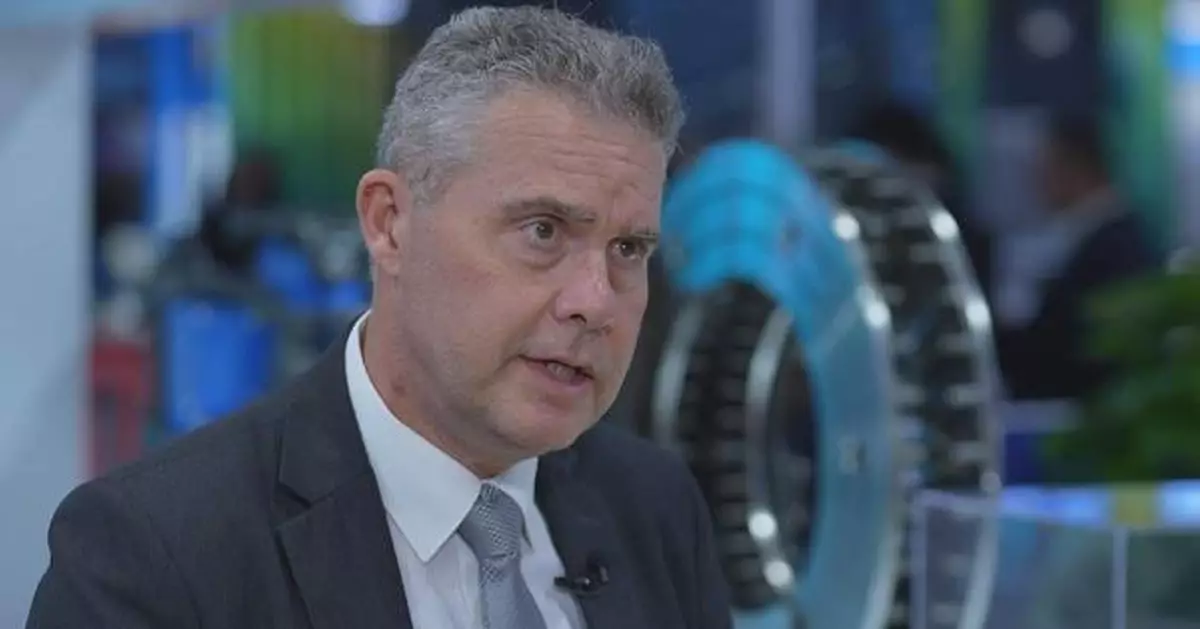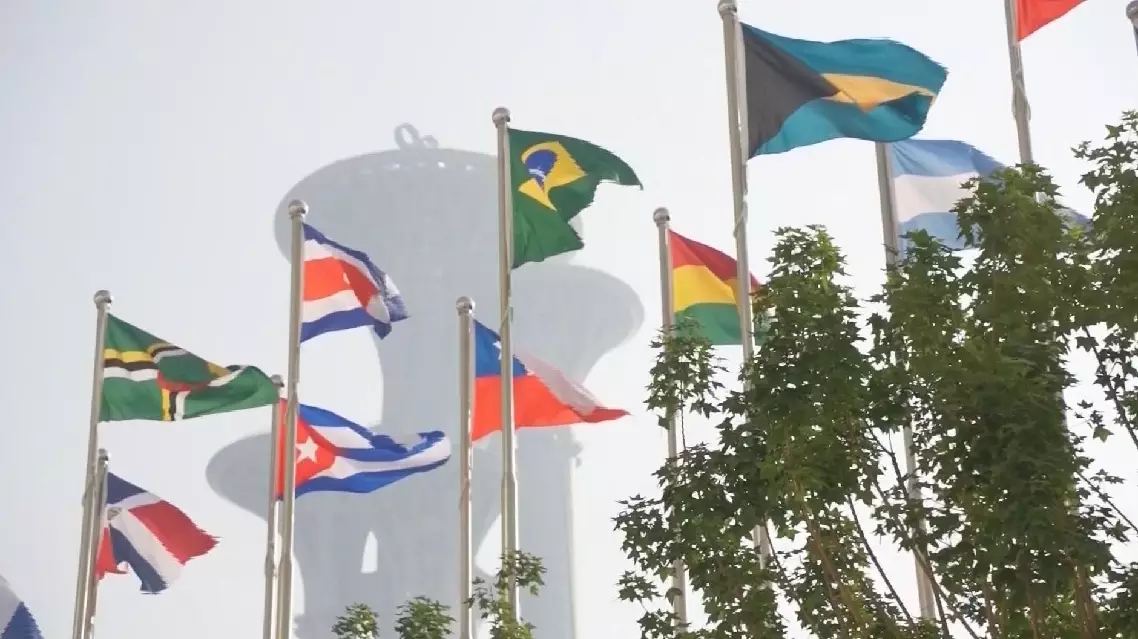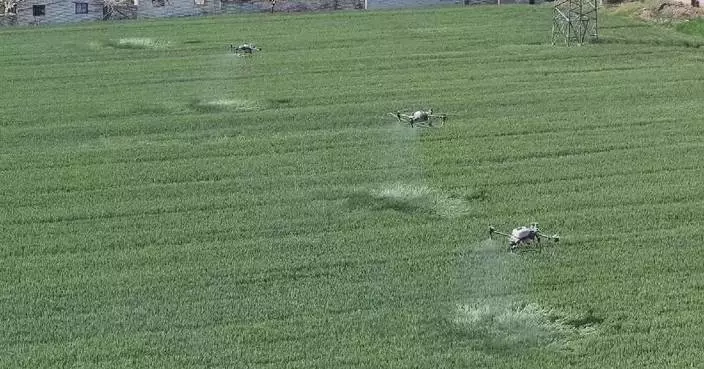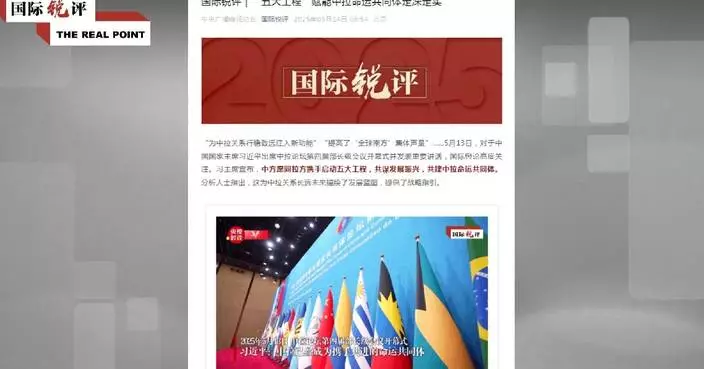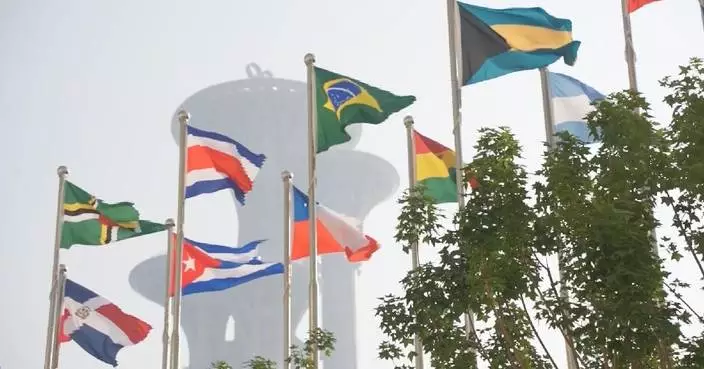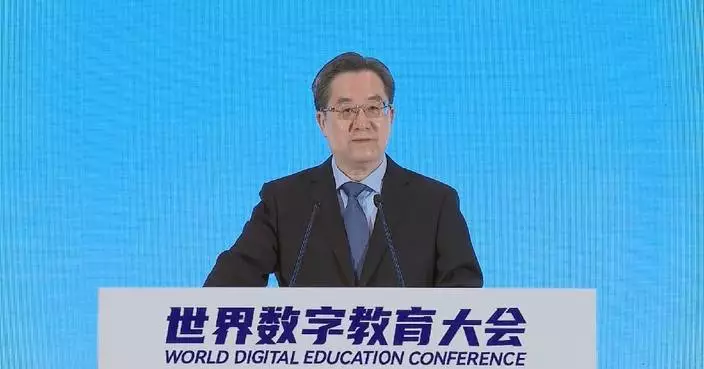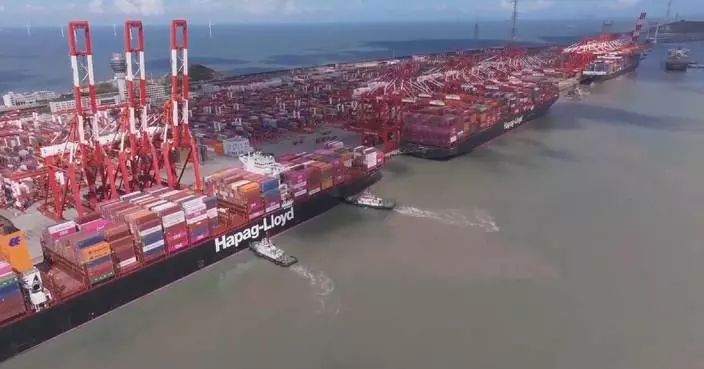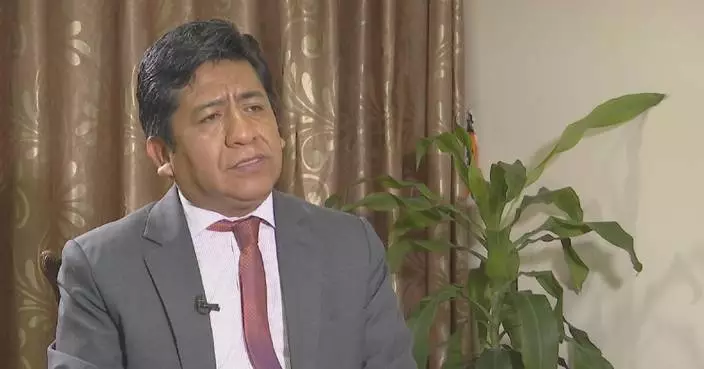Germany's Knorr-Bremse, the world's leading manufacturer of braking systems for rail and commercial vehicles, is "collaborating but also competing" as it looks to further integrate into the Chinese industry, a company executive said while attending the ongoing second China International Supply Chain Expo(CISCE) in Beijing.
The CISCE, which opened in the Chinese capital on Tuesday and will run through Saturday, is seeing the participation of more than 600 companies, with the number of foreign exhibitors also increasing this year.
Among those taking part for the first time is Knorr-Bremse. The German firm has had a production presence in China for 20 years, and earlier this year deepened its localization efforts by opening a new plant in northeast China's Dalian.
Jonathan Paddison, a member of the board at Knorr-Bremse Asia Pacific, outlined how the company is stepping up its operations and stressed that the firm's rail and truck divisions are "very much integrated" into the Chinese industry.
"Actually, although we're a German company originally, we have more people in China than we do in Germany these days. So China becomes an extremely important part of our business, and we need to be integrated into the infrastructure," he said in an interview with the China Global Television Network(CGTN).
"We don't just see it anymore as being a foreign company coming into China. We are a Chinese company with Chinese development, Chinese manufacturing and a Chinese supply chain. Yet we have the advantage of being the bridge builder to the rest of the world and drawing on know-how when we need it. But the most important thing we've learned is we need to be very strong in China to keep up with our domestic competition, which is getting better and better. But we still like to think we have the edge, with our combination of being in China, for China, but also drawing on that worldwide experience that we have," he continued.
As Chinese manufacturers are catching up with their global counterparts, especially in high-speed train technologies, Paddison said he envisions this competition will actually deliver greater opportunities for collaboration and help to drive development.
"We welcome the competition to spur us on to develop and make even better products. Without competition, there is no innovation. And that's why we have four R and D centers here in China, to develop products for the future in our different market areas in China. And we use that very much, we have a large number of engineers working here on adaptions for the market," he said.
"Competition is good, we like to have the competition, but also we collaborate. And here on the stand we have a number of products which are built by joint ventures which we work with our main customer CRRC, but also with China Railway, we have a joint venture, so we are both collaborating but also competing at the same time," said Paddison.
The expo has drawn more than 600 companies from around the globe, with many showcasing their latest technologies and products while seeking cooperation in areas ranging from advanced manufacturing and green agriculture to clean energy.
Nearly one-third of exhibitors at the expo come from overseas, up 26 percent from last year, highlighting the widespread desire for international cooperation.
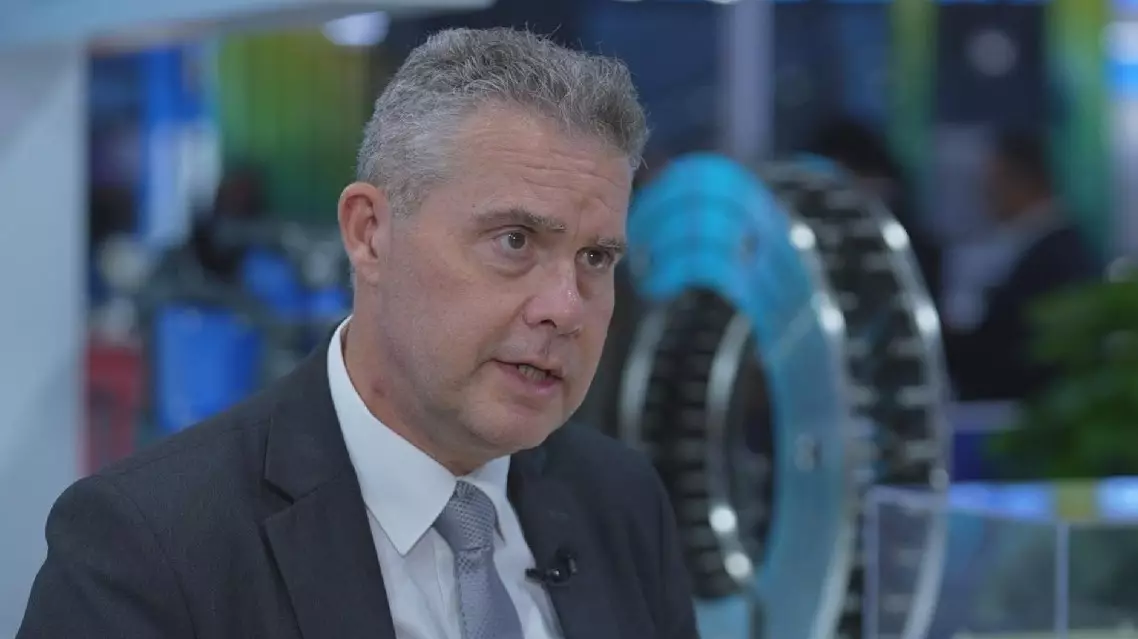
Knorr-Bremse "collaborating but competing" amid integration into Chinese industry: executive


